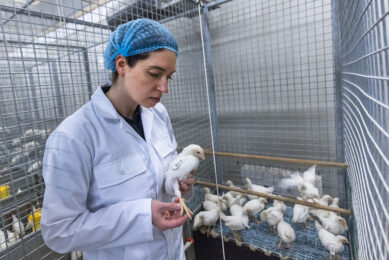European Commission adopts new salmonella regulations

The European Commission has adopted two regulations aimed at reducing and controlling the prevalence of salmonella in poultry and eggs across the EU.
The first regulation lays down targets for the reduction of salmonella in laying hens, which in turn should lead to less salmonella contamination in eggs.
Every Member State will have to work towards reducing the number of laying hens infected with salmonella by a specific minimum percentage each year, with steeper targets for Member States with higher levels of salmonella.
The first target deadline is set for 2008, although Member States will have to submit national control programmes on salmonella reduction in laying hens to the Commission by early 2007.
The second regulation adopted by the Commission sets out rules on the methods used to control salmonella in poultry, including mandatory vaccination from 2008 onwards for laying hens in Member States with a salmonella prevalence of 10% or more.
In addition to the two regulations adopted, the Commission is also currently looking into the possibility of introducing a trade ban on eggs from salmonella infected flocks as soon as possible.
The regulations have been made in light of the recent findings of the EFSA on salmonella levels in laying hens.
More information on the new EC salmonella prevention measures.
Go to our blog on the EFSA’s initial findings on salmonella.













